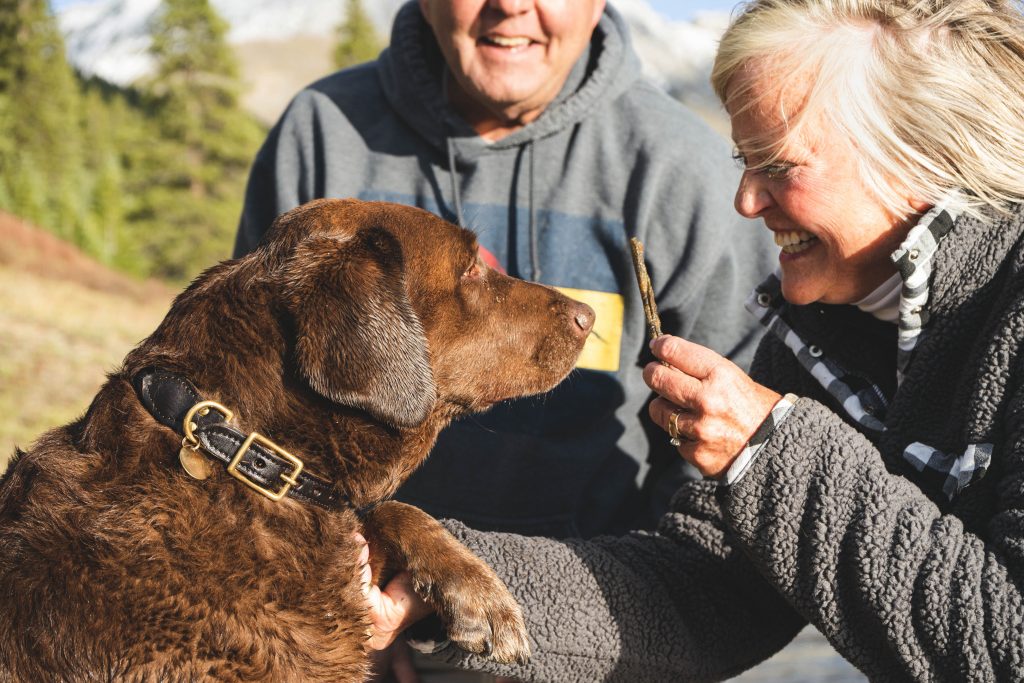This type of post could be useful for dog owners who are seeking reliable information and guidance on how to train their pets effectively. By debunking these myths, the blog post could help readers to make more informed decisions about their dog training methods and approach and potentially avoid any harmful or ineffective techniques. Additionally, the post could help to establish the credibility and expertise of the site as a source of accurate and reliable information on dog training.

As a dog owner, it’s important to have accurate information and guidance when it comes to training your furry friend. Unfortunately, there are many myths and misconceptions floating around about dog training that can lead to confusion and even harm if followed blindly. In this post, we’ll debunk five common dog training myths to help you make informed decisions about how to train your dog effectively.
Myth #1: Dogs should be punished for misbehaving:
Many people believe that punishing a dog, such as with physical correction or punishment, is the best way to teach them to behave. However, this is not true. Punishment can actually be counterproductive, as it can cause fear and anxiety in dogs, which can lead to even more behavioral issues. Instead, it’s much more effective to use positive reinforcement techniques, such as rewarding good behavior with treats or praise.
Myth #2: Older dogs can’t be trained:
It’s a common misconception that older dogs are too set in their ways to be trained. However, this is simply not true. While it may be more difficult to teach an older dog a new trick, it is still possible with patience, persistence, and positive reinforcement. In fact, training can be especially beneficial for older dogs, as it can help to keep their minds active and engaged.
Myth #3: Dogs should be alpha dogs:
Another myth is that dogs should be “alpha” or dominant over their owners in order to behave properly. This idea comes from outdated and flawed theories about how wolves interact in their pack hierarchy. In reality, dogs do not need to be “alpha” in order to behave well. In fact, trying to be an “alpha” can actually create problems, as it can lead to aggression and other behavioral issues. Instead, it’s important to establish a relationship of mutual respect and trust with your dog.
Myth #4: Certain breeds can’t be trained:
It’s not uncommon to hear people say that certain breeds of dogs, such as pit bulls or huskies, are inherently untrainable. However, this is simply not true. All dogs, regardless of breed, can be trained with patience, consistency, and positive reinforcement. It’s important to remember that every dog is an individual and may have unique training needs and challenges, but with the right approach, any dog can learn.
Myth #5: Dogs should be trained to be completely obedient:
While it’s important for dogs to have basic obedience skills, it’s not realistic or fair to expect them to be completely obedient all the time. Dogs are living beings with their own thoughts, feelings, and needs, and it’s important to respect and acknowledge this. Instead of striving for complete obedience, it’s more realistic and fair to focus on teaching your dog basic obedience skills and setting appropriate boundaries.

In conclusion:
It’s important to be aware of the many myths and misconceptions that exist about dog training. By debunking these myths and seeking out accurate information and guidance, you can effectively train your dog and foster a positive, trusting relationship with them.

Frequently Asked Questions
Is it really true that punishment doesn’t work for dog training?
Yes, punishment can actually be counterproductive when it comes to dog training. It can cause fear and anxiety in dogs, leading to even more behavioral issues. Instead, it’s much more effective to use positive reinforcement techniques, such as rewarding good behavior with treats or praise.
Can older dogs really be trained?
Yes, older dogs can definitely be trained! While it may be more difficult to teach an older dog a new trick, it is still possible with patience, persistence, and positive reinforcement. In fact, training can be especially beneficial for older dogs, as it can help to keep their minds active and engaged.
Is it really true that dogs don’t need to be “alpha” in order to behave well?
Yes, this is true. The idea that dogs should be “alpha” or dominant over their owners in order to behave properly comes from outdated and flawed theories about how wolves interact in their pack hierarchy. In reality, dogs do not need to be “alpha” in order to behave well. In fact, trying to be an “alpha” can actually create problems, as it can lead to aggression and other behavioral issues. Instead, it’s important to establish a relationship of mutual respect and trust with your dog.
Can all breeds of dogs be trained?
Yes, all breeds of dogs can be trained with patience, consistency, and positive reinforcement. It’s important to remember that every dog is an individual and may have unique training needs and challenges, but with the right approach, any dog can learn.
Is it really fair to expect complete obedience from my dog?
No, it’s not realistic or fair to expect complete obedience from your dog all the time. Dogs are living beings with their own thoughts, feelings, and needs, and it’s important to respect and acknowledge this. Instead of striving for complete obedience, it’s more realistic and fair to focus on teaching your dog basic obedience skills and setting appropriate boundaries.



